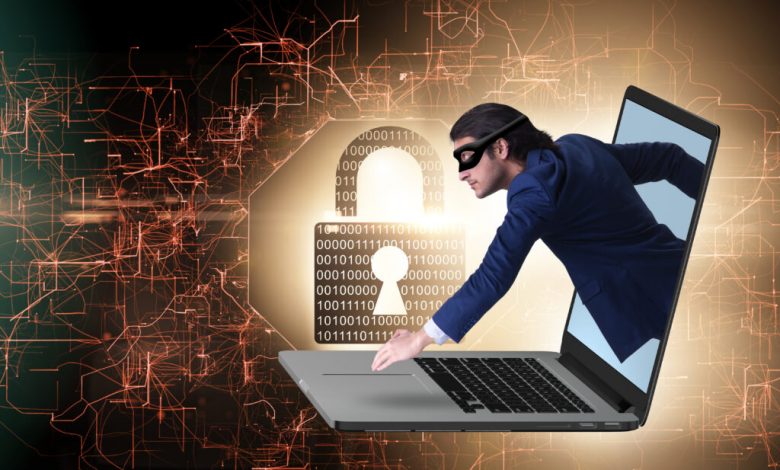How To Protect Your Identity Online ?

As we all know, the internet is a place where you can do practically anything you want. This is both a good and bad thing. The good part is that you can access information and products from all over the world. The bad part is that your personal information is open to anyone who wants it. This means that you need to be particularly careful about what information you share online. In this blog post, we will provide tips on how to protect your identity online. From using privacy settings to staying safe on social media, read on for advice that will help keep your identity safe and confidential.
Basics of Online Security
1. Use a strong password: A strong password is like a key to your account. It’s unique, it’s hard to remember, and it should be different for every website you visit.
2. Don’t reuse passwords: If you have one account at Facebook and another at Amazon, don’t re-use your Facebook password on Amazon. If you reused a password at one site on the internet, there’s a good chance you’ve reused it elsewhere as well.
3. Use two-factor authentication: Two-factor authentication is an additional layer of security that requires you to enter not only your username and password, but also a code from your mobile phone or another device.
4. Enable HTTPS Everywhere: HTTPS Everywhere is a free extension for Chrome and Firefox that helps secure your web browsing by encrypting all of your traffic with SSL (Secure Sockets Layer) encryption.
5. Use anti-virus software: Make sure your computer has up-to-date antivirus software installed and running regularly in order to help protect yourself against malware and other online threats.
How to Protect Your Email Address
There are a few ways to protect your email address online, and each has its own benefits. For example, using a unique password for all of your online accounts is one way to protect your identity. You can also use a secure browser extension like HTTPS Everywhere or Google Safe Browsing to make sure that all of your web traffic is encrypted. Finally, be sure to never give out your personal information—including your email address—to anyone you don’t trust.
How to Protect Your Facebook Page
When you create a Facebook page, you are granting the site permission to use your name, profile picture, and other information to create a public profile for you. You can also choose to make your page publicly available or private.
Public pages are accessible by anyone who goes to Facebook.com and enters the page’s URL (web address). Private pages are only viewable by people whom you approve as friends. When you make a page private, only people you’ve approved can see it.
To make your Facebook page more secure, follow these tips:
1. Keep your profile information current and accurate. Update your name, profile picture, and other information as needed. If you change your mind and want to make your page public again, be sure to remove all of the content that was hidden while it was private and update your privacy settings so that everyone can see it again.
2. Use a strong password. Make sure that your password is at least eight characters long and contains at least one number and one letter. Do not use easily guessed words like “password” or “1234”. Also do not share your password with anyone. If someone gains access to your Facebook account through something like a data breach or social engineering attack, they will be able to log in using yourpassword .
3. Consider using a security application like Facebook Safety Check . This application helps protect vulnerable accounts from being compromised by malicious software or attacks on web browsers used by users of
How to Protect Your Twitter Account
Twitter is a great way to share your opinions and thoughts with the world, but it’s important to take precautions to protect your identity. Here are some tips for protecting your Twitter account:
1. Create a strong password: Make sure your password is at least 12 characters long and contains at least one number, one letter, and one symbol.
2. Don’t use easily guessed passwords: Make sure you don’t use easily guessed passwords like “password” or “1234”.
3. Enable two-factor authentication: This will help protect your account from unauthorized access if you have to enter your password as well as a code sent to your phone or email.
4. Use caution when sharing personal information: Don’t share too much personal information on Twitter, such as your full name, address, or telephone number.
5. Keep an eye on what others are saying about you: When following people, be aware of what they say about you so that you don’t get hurt by online comments .
How to Keep Your Identity Safe Online
There are a lot of ways to keep your identity safe online, and the options are only going to grow as technology evolves. Here are four tips for protecting your identity online:
1. Use a strong password: The first step in protecting your identity online is to create a strong password. Make sure that the password is at least 8 characters long and includes upper and lowercase letters, numbers, and symbols. Don’t use easily guessed words or easy to find personal information like your birthdate or hometown address.
2. Use browser protection tools: Another way to protect your identity online is to use browser protection tools, such as passwords and firewalls. These tools can help block cookies and other tracking software from tracking your online activities.
3. Keep up with virus alerts: Protecting yourself against viruses is also important online. Make sure you keep up with virus alerts by installing anti-virus software on your computer and refreshing your browser’s security settings regularly.
4. Be vigilant about phishing attacks: One of the most common ways attackers steal identities is through phishing attacks. Be especially vigilant about emails that seem suspicious, and don’t give out personal information unless you’re absolutely sure that you know who you’re talking to.
How to Protect Your Credit Score
Many people believe that their credit score is only important to lenders. However, your credit score can also be a valuable tool for protecting your identity online. You may want to check your score regularly and take steps to protect it if it is low. Here are five ways to protect your credit score:
1. Keep track of your debts: Make sure you keep track of the amounts you owe on all of your bills. This will help you stay within your borrowing limits and improve your credit score.
2. Pay off debt quickly: If you have high-interest debt, pay it off as quickly as possible to improve your credit score. The longer a debt stays outstanding, the lower the credit rating will be.
3. Check your credit report: Once a year, each consumer has the right to free access to their own credit report from each of the three major credit bureaus – Equifax, Experian, and TransUnion – through AnnualCreditReport.com. Use this report to check for any unusual activity on your reports or any errors that may have been made in processing your application for a loan or credit card account.
4.. Guard against identity theft: Always use strong passwords and make sure that personal information such as Social Security number and birthdate are not readily accessible online. Use two-factor authentication when available on online accounts that hold important personal information such as bank accounts or shopping accounts.. 5….Monitor Your Credit Score Online:
How to Protect Your Social Media Accounts
There are many ways to protect your online identity, both big and small. Here are five simple tips:
1. Use a VPN. A virtual private network (VPN) encrypts all of your online traffic and makes it difficult for anyone to track you down.
2. Use a secure password. Make sure your passwords are strong and unique, and change them regularly.
3. Use two-factor authentication. This method requires you to enter not only your password but also a code sent to your phone or other trusted device.
4. Don’t post personal information. Don’t post pictures of yourself, your address, or any other personal information that could potentially be used to identify you.
5. Report any suspicious activity to authorities. If you notice someone trying to log into your account without proper credentials, or if someone is posting unauthorized content on your account, please report the situation to authorities as soon as possible
How to Protect Yourself from Fraudulent Websites
There are a number of ways to protect your identity online, both on the web and through devices like smartphones. Here are some tips:
1. Use a Secure Browser: Make sure your browser is using the latest security features, including anti-phishing tools and password protection.
2. Stay Vigilant for Phishing Emails: If you receive an email that looks like it comes from a trusted source, but contains a virus or fraudulent link, be careful about clicking on it. Always verify the sender and content before submitting any information.
3. Don’t Share Personal Info Online: Don’t share your personal information such as your Social Security number or bank account numbers online. Instead, use secure passwords and unique personal identification numbers (PINs).
4. Protect Your Data with Encryption: Whenever possible, encrypt your data to make it more difficult for hackers to access. You can also use firewalls and antivirus software to help keep your computer safe from malware and spyware infections.
How to Avoid Being Spied On Online
There are many ways to protect your identity online, but some are more effective than others. Here are five tips to help you stay safe:
1. Use a VPN: A virtual private network (VPN) encrypts your traffic and helps protect your online identity. VPNs can be expensive, but they’re worth it if you want to keep your online activities private. To use a VPN, you will need to install a software client on your computer or device.
2. Use a Secure Password: Make sure your password is strong and unique. Try to use random letters and numbers, and make sure it’s at least 8 characters long. Don’t use easily guessed words like “password” or “123456.”
3. Avoid Public Wi-Fi: Always use secure connections when surfing the web, including when using public wi-fi hotspots. Not only is this important for preventing theft of personal information, but public wi-fi can also be monitored by spy agencies.
4. Use Private Messaging Apps: There are many private messaging apps available that allow you to communicate securely without revealing your identity or location. These apps include Signal, WhatsApp, Facebook Messenger, and Telegram.
5. Keep Your Computer Updated: Make sure your computer is up-to-date and protected against spyware and malware attacks . Protect yourself by installing antivirus software , updating the software on your devices, and using caution when downloading files from unknown sources .
How to Delete Your Personal Information from Online Sources
If you want to protect your online identity, there are a few things you can do. First, make sure your passwords are strong and unique. Second, consider using a VPN if you travel a lot or in work-insensitive locations. And lastly, be sure to regularly delete old online accounts and files.
Password Security:
One of the simplest ways to protect your online identity is by ensuring that your passwords are strong and unique. Make sure to choose different passwords for different websites and don’t use easily guessed words or easily accessible personal information such as birth dates.
A Good Trick for Storing Passwords:
Another way to improve your password security is to store them in a secure location such as a password manager application or written down on paper. A good trick is to also create a password reset code if you ever forget yourpassword. This way, you won’t have to go through the hassle of creating a new password if you accidentally lose your original one.
VPNs for Maximum Privacy:
If you’re concerned about your privacy and want to shield yourself from potential tracking or spying, consider using a VPN (virtual private network). A VPN creates an encrypted tunnel between your computer and the VPN server, so all of your traffic (including website browsing) is hidden from prying eyes. This is great if you work in sensitive locations or travel frequently because it will prevent anyone from tracking.
Conclusion
It’s no secret that online privacy is a big topic these days. Whether you’re a business owner or just an average Joe, it’s important to take measures to protect your identity and keep your personal information safe. Here are some tips to help you do just that: -Use strong passwords: Make sure each password is at least 8 characters long and includes at least one number and one letter. -Avoid using easily guessed words: If someone knows enough about you (or the things you care about), they can likely guess your password as well. Don’t use easily guessed words like “password” or “123456”! -Keep track of login credentials: If you ever have to change your password, make sure to also change the login credentials for all of your accounts so that whoever does manage to get access won’t be able to just sign in with the old password.




